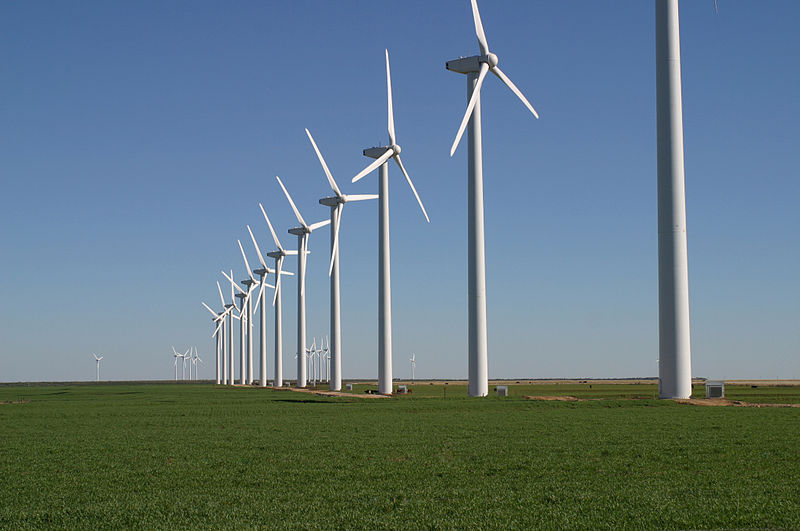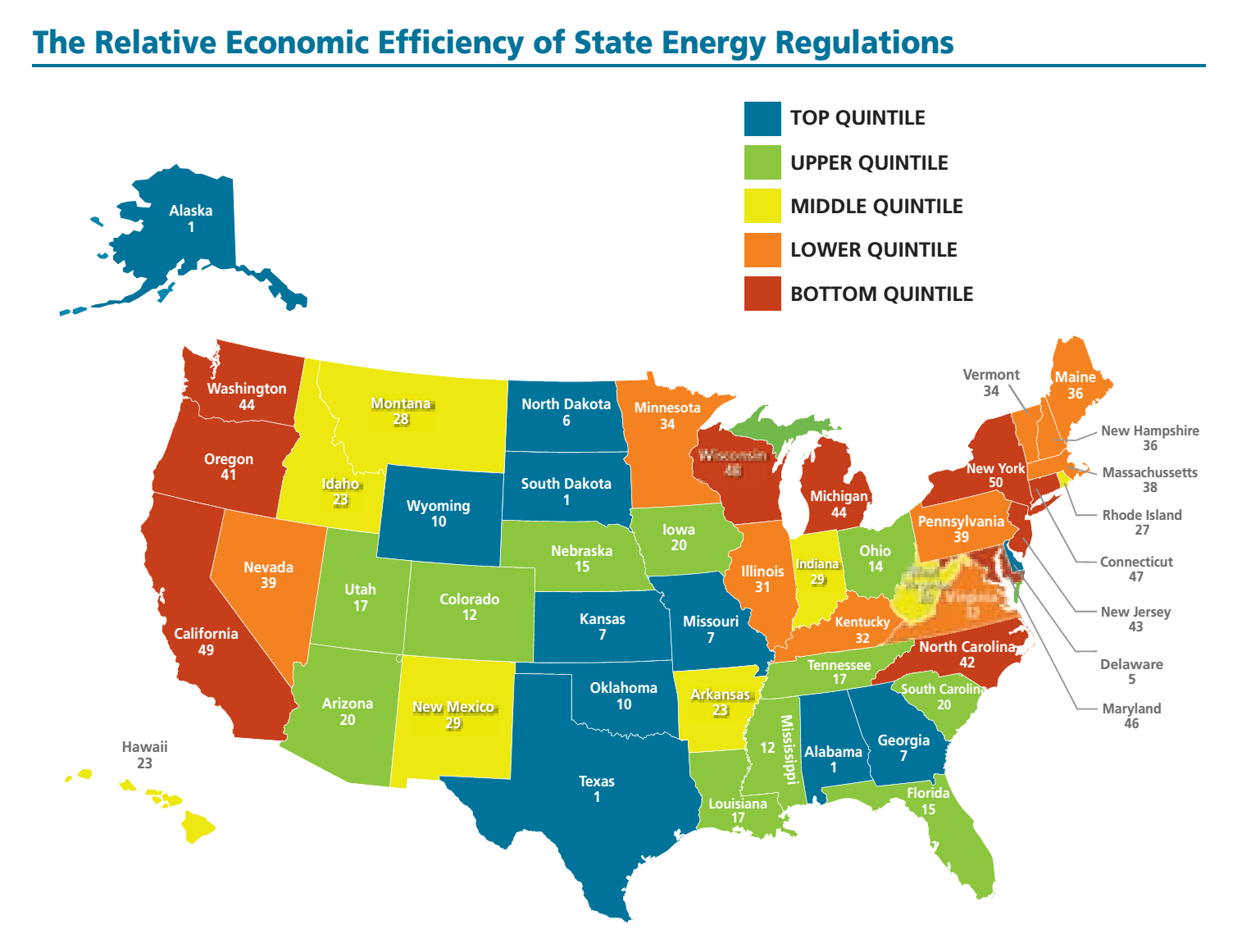
EspañolNew York, California, Wisconsin, and Connecticut have the least efficient energy regulations of all the US states. This is according to data provided by the Index of Energy Regulation published on August 7 by the Pacific Research Institute (PRI), measuring the regulatory climate in each state for energy consumption, production, and distribution. The report found that Alabama, Alaska, South Dakota, and Texas regulated their energy most efficiently — all sharing first place in the ranking.
The North American institute, which aims at promoting practical public policy market solutions, produced an index in which the energy regulations of all 50 states were analyzed on a scale from 1 (most efficient) to 10 (least efficient). The report states: “Policies which promote economic efficiency get the highest scores, those which reduce economic efficiency get the lowest.”
The study was based on seven component indices, sets of questions meant to capture how regulations affect all energy industries for each state. In preparation for the study, the PRI used sources mainly from the US Department of Energy, environmental groups, and other organizations related to the energy industry.
Their research shows, as illustrated in the document’s interactive map, that Southern and Midwestern states used their energy resources more efficiently compared to the rest of the country. States on either coast, as well as the Northwest and Northeast, used their resources least efficiently.
The report underlines the correlation between inefficient regulation and lower GDP growth. On average, the states with better results tend to grow faster than those in which regulation is implemented in less efficient ways. According to the study, between 2002 and 2012, the states at the top of the rankings demonstrated 20 percent more growth than those positioned at the bottom of the list.
The states using their resources most effectively have also demonstrated greater employment growth. Alabama, Texas, and Alaska demonstrated a 9.8 percent job creation rate, compared to 1.7 percent in New York, California, and Wisconsin. “This relationship makes sense,” says PRI senior fellow Wayne Winegarden, coauthor of the report with Marc Miles.
“Energy is one of the essential ingredients that drive economic growth in a modern economy. Consequently, states that encourage the efficient production and consumption of energy should be expected to experience faster economic growth than those states that discourage economic efficiency in the energy marketplace.”
Contributions to National Public Policy
“As economists, we have adopted a basic economic perspective — economic efficiency — defined as allocating resources to their most productive uses,” said Winegarden. The 56-page index includes renewable and non-renewable sources: oil, natural gas, nuclear power, hydroelectric, and solar and wind power. All of them, the authors say, are subject to both state and federal regulation. However, the study also finds little correlation between states that possess substantial energy resources (coal, gas, oil), and the efficient use of those resources.

Because federal regulation affects all states, the study was focused on measures taken by individual state governments. The report raises many questions: What are the options for industrial and commercial customers with regard to the types of energy available? Which regulations are designed to reduce energy consumption? Is production flexible enough to make prices fluctuate according to the market conditions? Do energy distribution and transmission restrictions exist?
The researchers stress that the outlook for the near future will involve further federal regulation. The Environmental Protection Agency proposed new regulations in June of this year, which, if implemented, will seek to reduce carbon dioxide emissions by 30 percent by 2030.

 Versión Español
Versión Español












